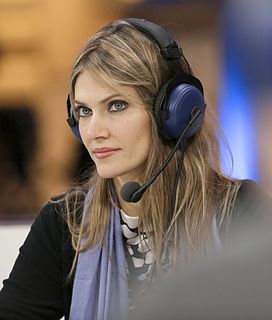A Quote by Andrew Wiles
Some mathematics problems look simple, and you try them for a year or so, and then you try them for a hundred years, and it turns out that they're extremely hard to solve. There's no reason why these problems shouldn't be easy, and yet they turn out to be extremely intricate. Fermat's Last Theorem is the most beautiful example of this.
Related Quotes
We [with husband] try and spend time alone, which is really hard to do. Of course, when you have kids they're like: "Why are you going out? You went out last night... you can't go out tonight!" so, you try to do that, and you try and ask somebody to please turn off the football game because you can't stand it any longer and you'd rather talk to them.You try to make time for each other where you can. You try to plan a trip away somewhere.
You must know the big ideas in the big disciplines, and use them routinely - all of them, not just a few. Most people are trained in one model - economics, for example - and try to solve all problems in one way. You know the old saying: to the man with a hammer, the world looks like a nail. This is a dumb way of handling problems.
It is problems that we faced for 30 years and we had to solve them in a couple of years only and the solution really pushed us and the economy couldn't handle it. We had the greatest depression. It wasn't easy and I think we expected the results. But the other thing is we have to try to create the plan B and get us out of this crisis as soon as possible.
The natural tendency of children is to solve problems, but we try to indoctrinate them with facts, which they are supposed to feed back, and then we fail them. And that's child abuse. And you should never raise children that way. You should cultivate and encourage their natural tendencies to create solutions to the problems around them.
Teaching and writing, really, they support and nourish each other, and they foster good thinking. Because when you show up in the classroom, you may have on the mantle of authority, but in fact, you're just a writer helping other writers think through their problems. Your experience with the problems you've tried to solve comes into play in how you try to teach them to solve their problems.
How hard is it to build an intelligent machine? I don't think it's so hard, but that's my opinion, and I've written two books on how I think one should do it. The basic idea I promote is that you mustn't look for a magic bullet. You mustn't look for one wonderful way to solve all problems. Instead you want to look for 20 or 30 ways to solve different kinds of problems. And to build some kind of higher administrative device that figures out what kind of problem you have and what method to use.




































